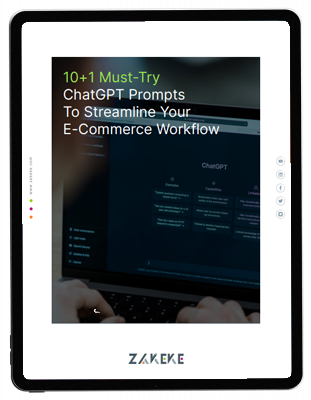Modern website development has a particular set of rules. One of such rules is the inclusion of certain pages.
A clear home page, a blog, a contact page, etc., are something we usually find whenever we visit a Shopify store or another website unless it is a very specific site.
One of the more overlooked elements is an FAQ page. Some brands might mix the frequently asked questions section with the “About” section.
The latter is meant to tell the brand’s story, whereas a Shopify FAQ page functions as a knowledge base for specific details, such as brand policies (return and refunds, data collection, product specifications, delivery timeframes, and so on).
Despite the fact that a fair few consumers expect an FAQ page, plenty of brands choose not to create one. Some of it is due to the lack of resources, and some is due to not knowing how much value having a FAQ page for Shopify store brings.
To remove doubts and encourage more stores to work on a dedicated frequently asked question page, here are 6 reasons why such a page should be part of your website.
1. It Boosts SEO
Let’s start with search engine optimization. Long-term SEO is one of the most important aspects of creating a thriving business.
Google and other search engines value content that provides value to consumers. A Shopify FAQ page should offer well-written solutions.
It is common to include long-tail keywords to emphasize specific parts of the content. However, over-optimization might lead to answers that feel like fluff content stuffed with keywords rather than something valuable to the website visitors.
While it is reasonable and expected to do keyword research for your Shopify FAQ page, remember that the priority lies in providing quality answers.
By focusing on detailed information, you will likely start ranking for keywords that you did not even research in advance, which is an added bonus for the efforts you put into tailoring your FAQ section on the website.
2. It Builds Brand Authority
It is no secret that Shopify stores focus on sales. Making money is the ultimate goal. However, ecommerce is extremely competitive, and brands have to look for ways to establish their presence as much as possible.
Building authority is one of the methods to stand out from others. A Shopify FAQ page comes in handy.
Put yourself in the shoes of a customer. If you are looking for an answer to a question, it is safe to assume that you will seek someone you trust.
Giving answers on an FAQ page for Shopify works as a means to establish authority. Customers visit this website section because they expect to find answers. And when they do, the trust in the brand grows.
If other Shopify stores in your niche have lackluster FAQ pages or are missing them completely, you gain an edge by distinguishing your website from them with the help of a well-curated Shopify FAQ page.
3. It Generates Content Ideas
An FAQ page also offers opportunities to generate content ideas for your blog. The page in itself could be an excellent source to provide readers value, but if your Shopify store has a blog, you might want to expand on some pieces from the FAQ page.
As you continue to collect feedback from customers and expand your store, the introduction of fresh questions and answers will come with that.
Cluttering your Shopify FAQ page with endless walls of text might not be the best approach because it is meant to give relatively short answers.
Shoppers who visit an FAQ page expect to find an answer quickly so they can move on with the purchase. Rather than burdening them with overabundant information, offer a button to redirect them to a blog post or another source that expands on the information in question.
4. It Saves Shoppers Time
New shoppers usually take a while to get accustomed to a store they are navigating through. Whenever a problem comes up, they have two options:
- Contact customer support
- Look for answers on an FAQ page
The first option does not appeal to everyone. Some people have had negative experiences with customer support in the past, mostly due to how long it takes to get a response.
They come with a prejudice that getting in touch with support is a waste of time. Looking for answers themselves sounds like a better strategy.
A detailed FAQ section that provides the information encourages consumer autonomy. They do not have to worry about dealing with customer support.
5. It Takes the Pressure Off of Customer Support
Continuing with the point about how a Shopify FAQ page helps customers, a similar thing can be said about customer support reps.
FAQ pages enable customers a direct way to seek information to solve problems, which means that customer support reps do not have as much workload.
During busy periods, such as holidays or sales, the website traffic usually grows, and it results in extra tasks for a customer support department that might already be struggling to keep up with all the queries.
Customer support reps can also redirect customers directly to the FAQ page or use it themselves as a knowledge database in case they do not have certain details memorized.
6. It Improves Sales
With all that has been said, it leads to the fact that a Shopify FAQ page ultimately boosts conversion rates and sales.
Organic traffic from optimized content stumbles upon a website and finds a solution to the problem.
Visitors, in general, use the FAQ section as a reference to find a solution so they can complete the transaction instead of abandoning their shopping cart.
Conclusion
To sum it all up, a Shopify FAQ page brings multiple benefits, so it would be a waste not to create such a section on your website.
Both new and regular shoppers can rely on the page to find the information, and so can customer support reps.
They can even download the page in a PDF format and use it as a reference for the future. And if the document size is too big, there is always the option to resize PDF files or move them to external storage, such as clouds, to preserve storage on the device.

Laura Alexander
E-Commerce Content Manager
Laura Alexander is a freelance digital content manager and copywriter. Specializing in tech, ecommerce, and educational content, she had her work appear in publications like Omnikick, Pomodoneapp, Sortlist, and Price2Spy.















